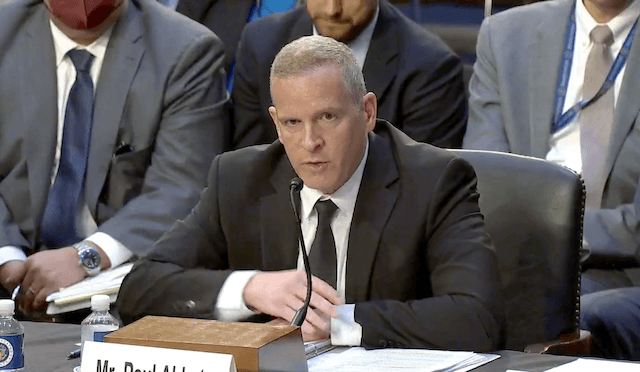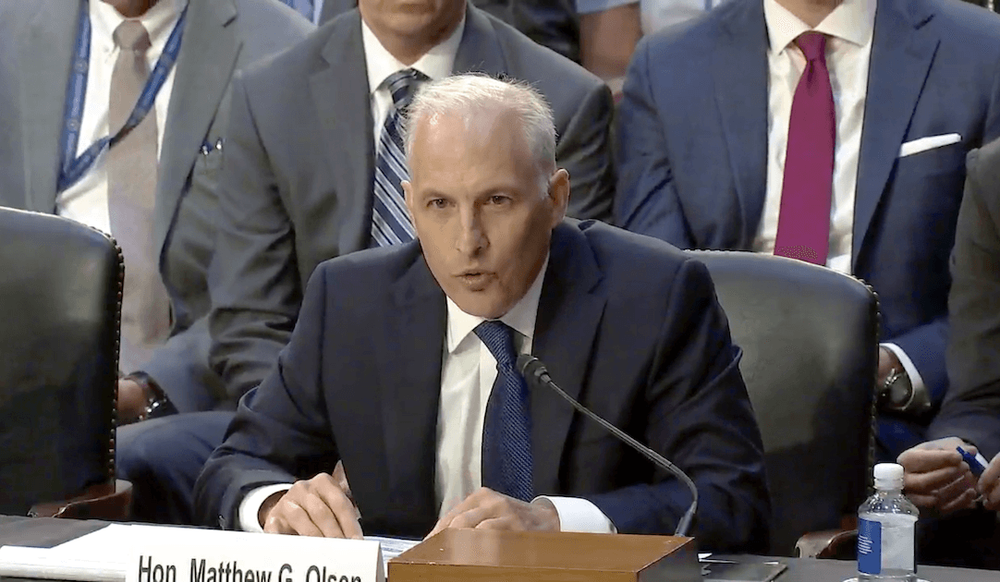Senators say Biden administration isn’t close on overhauling surveillance law
Democrats and Republicans on a key Senate panel signaled Tuesday that a series of reforms the FBI made to how analysts search U.S. citizens' electronic data under a warrantless surveillance program is not enough to earn their support for the law’s renewal.
The Senate Judiciary Committee held the chamber’s first public hearing on reauthorizing Section 702 of the Foreign Intelligence Surveillance Act (FISA). The statute allows U.S. agencies to collect electronic data of foreigners overseas, even if those communications involve U.S. citizens, without a warrant and retain the information for national security investigations. The authority is due to expire at the end of the calendar year.
The Biden administration wants to renew the law but has struggled to overcome recent disclosures of past FBI abuses of so-called U.S. person queries, leading lawmakers on both sides of the aisle to wonder if the agency’s personnel should be required to obtain a warrant before accessing data gleaned through the program.
“I will only support reauthorization of Section 702 if there are significant — significant — reforms. And that means, first and foremost, addressing the warrantless surveillance of Americans in violation of the Fourth Amendment,” Judiciary Committee Chairman Dick Durbin (D-IL) said in his opening statement.
“U.S. person queries” is a term for searches that are reasonably likely to identify one or more specific American citizens.
“Moreover, the reforms must also include safeguards to prevent future abuses and ensure effective oversight by Congress and the courts,” added Durbin, whose panel shares oversight of FISA with the Senate Intelligence Committee and their House counterparts.
 FBI Deputy Director Paul Abbate. Image: Senate Judiciary Committee
FBI Deputy Director Paul Abbate. Image: Senate Judiciary Committee
Sen. Lindsey Graham of South Carolina, the panel’s ranking Republican, agreed with Durbin, telling FBI Deputy Director Paul Abbate that the agency must “prove to this committee that when you query about American citizens in that system that you’re not just being lazy, getting around the law, and that these abuses need to stop.”
Abbate and Assistant Attorney General Matthew Olsen, the head of the DOJ’s National Security Division, spent most of the session touting changes the bureau began implementing over the last two years, including requiring certain types of searches to be reviewed by attorneys and making bureau officials affirmatively “opt in” to 702 queries.
That second tweak alone was the primary factor in reducing U.S. person queries by over 90 percent between 2021 and 2022, according to Olsen.
He also said a 2023 Foreign Intelligence Surveillance Court opinion on Section 702 is undergoing declassification and will highlight additional improvements around FBI querying.
‘Three strikes’ and more
In his testimony, Abbatte announced two new compliance measures for FISA: instituting a “three-strike” rule for query-related incidents that can lead to anything up to dismissal and an evaluation of leaders for monitoring compliance in their divisions that can affect performance ratings and promotions.
But all of that still wasn’t enough to convince skeptical policymakers.
The FBI has “shown us repeatedly for more than a decade that they cannot be trusted,” said Sen. Mike Lee (R-UT). He accused the organization of having a “shocking disregard for Americans’ privacy rights and civil liberties.”
"I don't think you have made the case that there shouldn't be a warrant requirement,” said Sen. Jon Ossoff (D-GA), who also sits on the Intelligence panel.
Olsen repeatedly shot down suggestions of such a requirement, arguing it “is not workable and not legally required” and “would put the nation at grave risk,” echoing comments made by other senior administration officials.
However, Olsen and Abbate indicated they would be open to enshrining the changes made to date into law.
“We would not have any objection at all, from the FBI standpoint, to codifying any and all the reforms that we put in place and future ones as well,” Abbate testified.
Olsen said “we are open to engaging on reforms and implementing reforms that don't undermine the essential effectiveness of Section 702.”
Yet Durbin indicated that even codifying the FBI’s internal changes wouldn’t be enough.
“If the reforms that you’ve mentioned in 2021 and 2022 are the only reforms that you’re bringing to this Committee as we discuss the future of 702, I’ve got to see more,” he said. “And I hope there is more that you can present.”
Martin Matishak
is the senior cybersecurity reporter for The Record. Prior to joining Recorded Future News in 2021, he spent more than five years at Politico, where he covered digital and national security developments across Capitol Hill, the Pentagon and the U.S. intelligence community. He previously was a reporter at The Hill, National Journal Group and Inside Washington Publishers.



